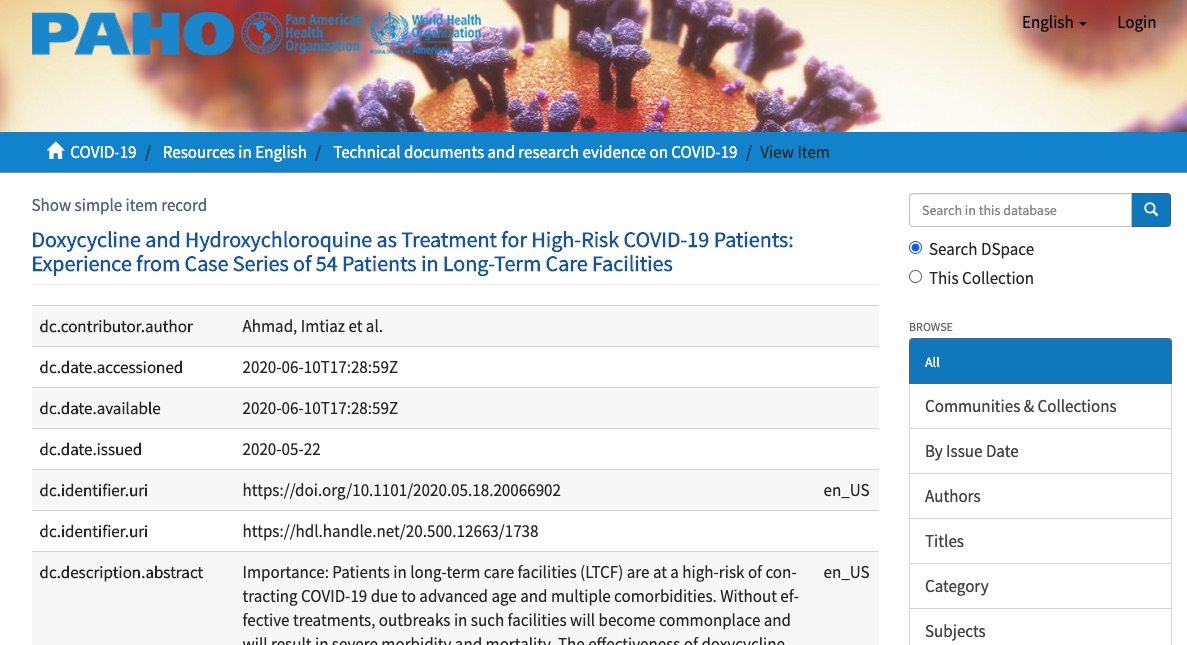Source: Pan American Health Organisation
Importance: Patients in long-term care facilities (LTCF) are at a high-risk of contracting COVID-19 due to advanced age and multiple comorbidities. Without effective treatments, outbreaks in such facilities will become commonplace and will result in severe morbidity and mortality. The effectiveness of doxycycline (DOXY) and hydroxychloroquine (HCQ) combination therapy in high risk COVID-19 patients in long-term care facilities is not yet understood.
Objective: The goal of this analysis is to describe outcomes after use of DOXY-HCQ combination in high-risk COVID-19 patients in LTCF. Design: Case-series analysis. Setting: Three (3) LTCFs in New York.
Participants: From March 19 to March 30, 2020, fifty-four (54) patients, residents of three (3) LTCFs in New York and diagnosed (confirmed or presumed) with COVID-19, were included in this analysis.
Exposure: All patients who were diagnosed (confirmed or presumed) with COVID-19 received DOXY-HCQ combination therapy along with standard of care.
Main Outcomes and Measures: Patients characteristics, clinical recovery, radiological improvements, medication side-effects, hospital transfer, and death were assessed as outcome measures.
Results: A series of fifty-four (54) high-risk patients, who developed a sudden onset of fever, cough, and shortness of breath (SOB) and were diagnosed or presumed to have COVID-19, were started with a combination of DOXY-HCQ and 85% (n=46) patients showed clinical recovery defined as: resolution of fever and SOB, or a return to baseline setting if patients are ventilator-dependent. A total of 11% (n=6) patients were transferred to acute care hospitals due to clinical deterioration and 6% (n=3) patients died in the facilities. Naive Indirect Comparison suggests these data were significantly better outcomes than the data reported in MMWR (reported on March 26, 2020) from a long-term care facility in King County, Washington where 57% patients were hospitalized, and 22% patients died.
Conclusion: The clinical experience of this case series indicates DOXY-HCQ treatment in high-risk COVID-19 patients is associated with a reduction in clinical recovery, decreased transfer to hospital and decreased mortality were observed after treatment with DOXY-HCQ.
Related: Azithromycin and Hydroxychloroquine Accelerate Recovery of Outpatients with Mild/Moderate COVID-19

